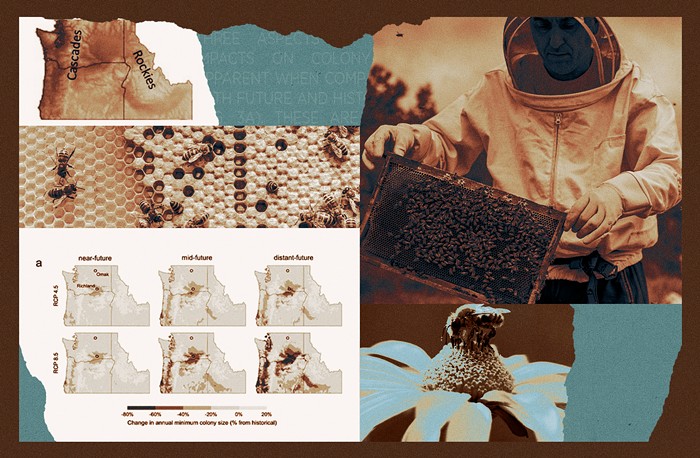There has been huge debate in online science circles around the publication of "The Uninhabitable Earth" by New York Magazine. The article itself is misleading and has been thoroughly fact-checked through the online forum Climate Feedback. Put succinctly by Peter Neff, a postdoc at the University of Rochester, the article “takes significant literary license to leverage information grounded in truth and paint an apocalyptic picture of extreme future scenarios possibly driven by anthropogenic climate change.”
It is true—it is hard to deftly adjust the presentation of climate science in public spaces so that it is appropriately serious, but also includes the real opportunities and solutions that attend this global problem. Indeed, the late climate scientist Steve Schneider, a towering figure within my scientific community, wrote about the “double ethical bind” of communicating both effectively and honestly. Indeed—this shit is hard and the stakes are high. As a climate scientist, I want to communicate the extreme risk that we are courting by changing this planetary-scale system. You don’t have to put lipstick on this pig to make it any more attention grabbing, because the conservative scientific consensus about climate change is absolutely terrifying.
On the twitters, I watched many, many scientists, in response to the apocalyptic picture painted by the NY Magazine piece, cry out “STOP SCARING PEOPLE!” In part, this response by the scientific community is a natural expression of the Pollyanna approach to science communication that is institutionalized around us. Tell a story, they teach us. Be personable, they instruct us. And sure—we all want to listen to personable stories. But that advice falls woefully short of the real role of science in the post-fact Trumpian hellscape of the current American moment. Scientists are being asked to do an impossible task that we were never trained for, and the professional paradigm of communication we are swimming in is broken.
In part, I have made a career out of sitting inside of the terror and apathy that are natural responses to understanding such a huge global problem. I martyred myself on this shit—and even now, at scientific meeting after scientific meeting, I cry in a corner with colleague after colleague about how fucking awful this global moment is. You meet the eyes of scientists, especially young parents, and you can seen the gritty, weary agony of this crisis. We too are broken over and gutted by the science.
Climate change IS scary, and yet there are thousands of pathways forward that can carry us away from this precipice. The real question is: how do we sit with this fear and at the same time enact robust, collective action? For me, I have a grounding line that I fall back on when the grief swells around me. This is what I know: in the future, regardless of the trajectory of warming, destabilization, and change, the world will still be beautiful. We will still be family. We will still love one another. There are non-negotiable parts of the human experience, and when I look at my small, humble, and messy life—I see how these pieces are enough to sustain and nourish me through this crisis. Regardless of what the science says.















